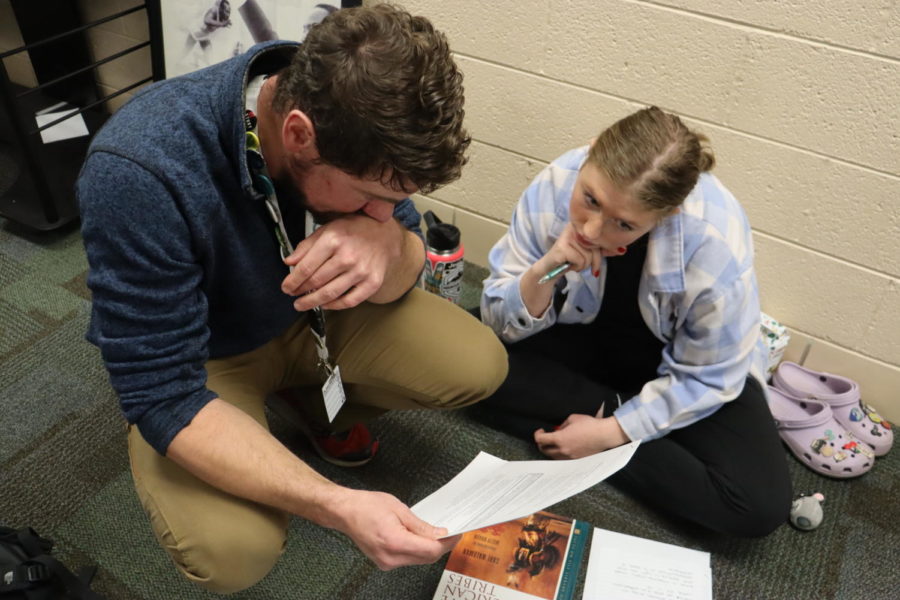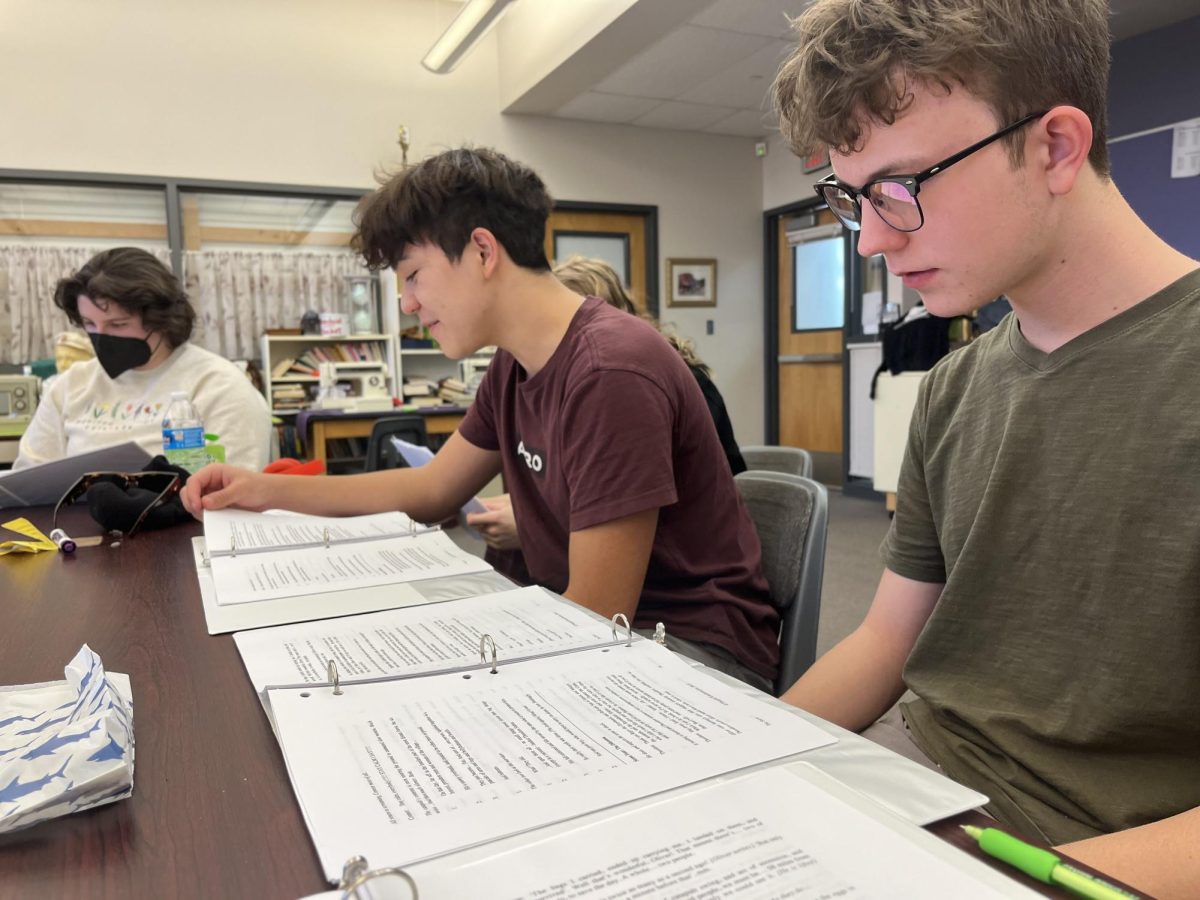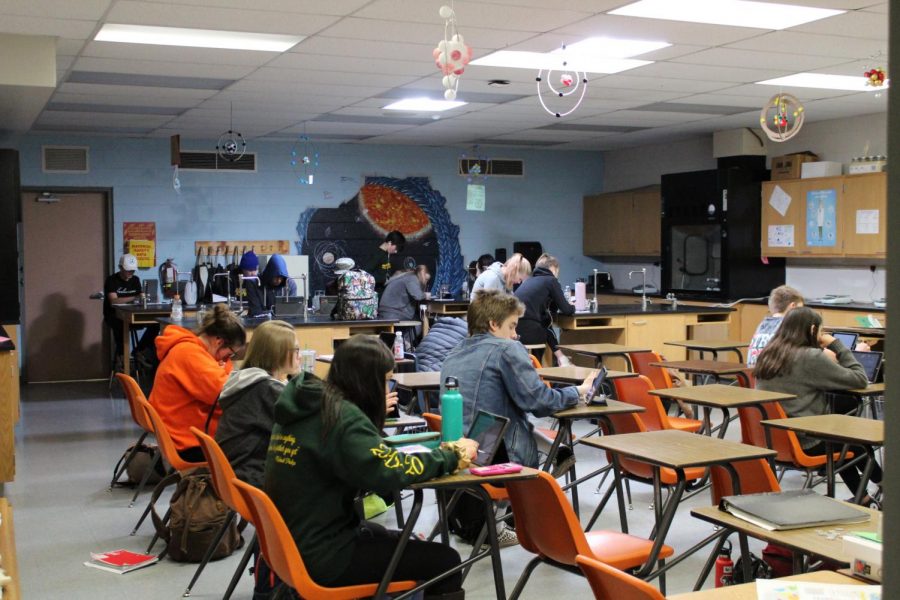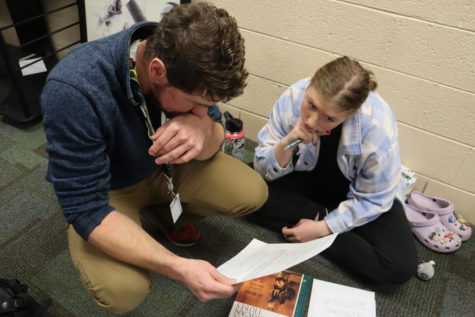Poor Work Ethic or Poor Teachers: Who’s to blame for difficulty in classes?
Students in Physical Science doing their work.
March 16, 2020
Mr. Miyagi once said in “The Karate Kid,” “There is no such thing as bad student, only bad teacher.” How much truth is there to Mr. Miyagi’s claim? In high school, many students have trouble in certain classes. Is this due to the ability of the teacher to execute their job, or is the student at fault? Could there be an equal sharing of fault on both parties? What does the word “bad” really mean anyway? Although lazy students exist, there are also teachers that fail to live up to the expectations of their learners.
I interviewed several students and a teacher at Manitou Springs High School to see their points of view on this very real topic. All interviewees agreed that “bad” teachers do exist and all have experienced unpleasant events that happened with their educators. “I’ve had bad experiences with teachers for sure,” said history and psychology teacher Mr. Robbins. Robbins mentioned favoritism, which can single out learners. The full majority of the interviewees that shared their bad experiences all happened in person.
Sometimes, a bad teacher can turn a learner off to the subject being taught. Mrs. Kerrigan shared that she may have been a history teacher if she had ever experienced a good history teacher in high school. But, not all students have this experience. When asked the question “Did this change your view on the subject the teacher taught?” Dakotah Foster (11) responded, “No, not really just the person.” This can cause communication and interconnection problems between the learner and the educator and make it harder for students to attain their education.
A common theme shared by all the people I had interviewed was that some teachers were not able to provide help and would choose to not help the student academically. Sydney Nutche (11) stated that she had an experience where she asked a teacher if a math problem was wrong and if she could get help if it was. The teacher responded poorly and failed to reach out to give her help. James Hayes (11) recalled a time where he was putting in the work for his assignments, but the teacher refused to grade them and this caused his grade to drop dramatically. The Portland Oregon University website states that “School engagement was a key factor in whether students stayed in school. Engagement doesn’t mean a song and dance at the front of the classroom. It means that students are engaged by content, process, and product. It means they feel respected and cared for by their teachers. It means they feel safe and secure in school.”
“One of the things that I think that teachers should do, and is reflective of work ethic, is to give feedback back to students,” Mr. Robbins shared when asked the question “What is a teacher’s job?” His answer correlated with what the article stated. When Hayes and Nutche shared their experience, teachers had not given useful feedback or any feedback at all. In the interviews, the students and teacher stated that they have all had a teacher who did not meet their expectations.
One might argue that there is no such thing as a “bad” teacher, but only students who have poor work ethics. It is true that some students can be considered lazy and unmotivated. But there are underlying reasons as to why the student is behaving a certain way, and some teachers are unable to identify them. Home issues and social life can come into play as to why a student isn’t participating or seems unwilling to learn. According to Nutche, her work ethic depends on the assignment and whether or not it is easy or hard. If it is easy, she tends to get it done right when she receives the homework. Damien Adkins (11) added, “It depends. I have teachers that I slack off and they still grade things and then versus the teacher I turn things in on time and they won’t get it graded for weeks.” According to these students, work ethic depends on the teacher and the difficulty of the homework they assigned. What if all teachers gave work that was engaging and relevant? What if all teachers offered help and gave good feedback? It seems like students would be inspired to reach their full potential.
Maybe Mr. Miyagi was speaking the truth that the student is not at fault, but the teacher should be held responsible. A teacher’s job is to educate and engage their students and to provide help whenever possible. There are educators who exist that do not live up to their job description, do not fulfill their learners’ expectations, and do not properly teach them.
Editor’s Note: The names of teachers from student experiences were withheld for privacy.






















































